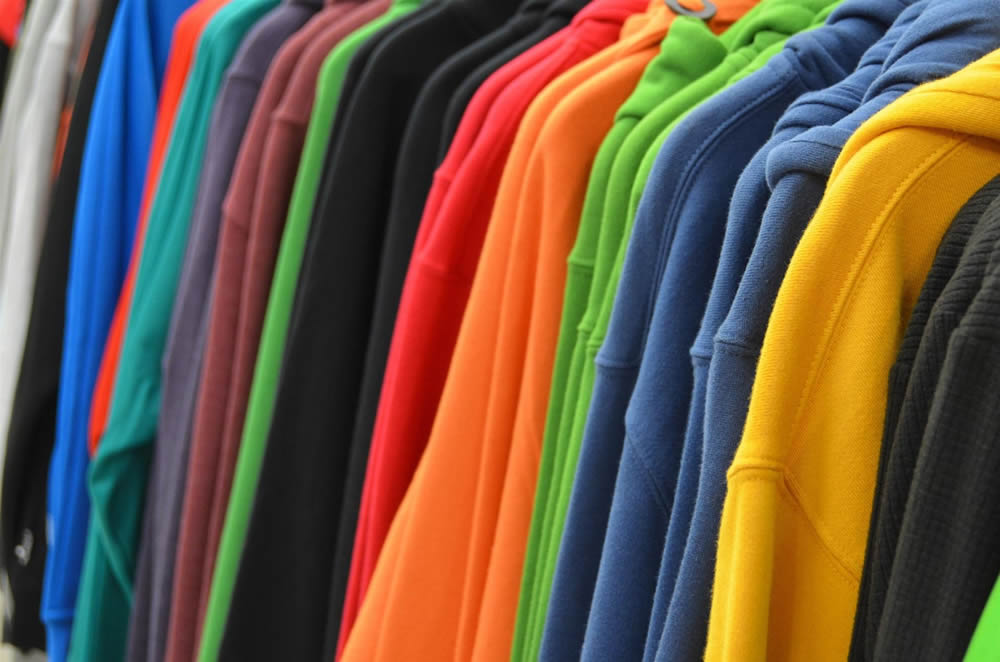Are you tired of wearing the same old sweatshirts everyone else has? Do you want to express your personal style and message through your clothing? If so, designing your own custom sweatshirt is a great option. But where do you start? In this guide, we’ll provide practical advice on how to create your own custom sweatshirt design, from selecting the right colors and fonts to choosing the best printing method and fabric type.

#1 Choosing Your Design Elements
The first step in designing your custom sweatshirt is to determine the concept or theme you want to convey. Whether it’s a personal motto, a pop culture reference, or a simple graphic design, having a clear idea of what you want your sweatshirt to represent will make the design process easier. Once you have a concept in mind, it’s time to choose the design elements.
Selecting the right colors and fonts can make or break your design. Make sure the colors complement each other and the design itself. Consider the mood you want to convey and the message you want to send. For example, bright and bold colors might work for a fun and playful design, while muted and earthy tones might work better for a more serious message.
Fonts are another crucial design element. The font you choose can convey a specific tone or feeling, so it’s important to choose the right one. Make sure the font is legible and fits with the overall design. Avoid using too many different fonts, as this can make the design look cluttered.
Graphic elements, such as logos or illustrations, can add visual interest to your design. When choosing graphics, make sure they are relevant to your concept or theme. Avoid using copyrighted material unless you have permission to do so.
#2 Considerations for Printing Method and Fabric Type
Once you have your design elements selected, it’s time to think about the printing method and fabric type. There are several printing methods to choose from, including screen printing, DTG printing, and embroidery. Each method has its own advantages and disadvantages.
Screen printing is a popular method for printing custom sweatshirts because it’s cost-effective for large quantities. It involves using a stencil to apply ink onto the fabric. DTG printing, on the other hand, is a newer printing method that uses a printer to apply ink directly to the fabric. DTG printing is best for small quantities or one-off designs.
Another popular modern approach is DTF printing, which uses a special type of film to transfer the design onto the fabric. This sustainable method allows for more intricate and detailed designs but is more costly than others. Entrepreneurs tend to buy UV DTF transfer here so they can freely experiment and design their own sweatshirts. Also, it is gentle to the environment because there’s hardly any water waste. In terms of fabric type, choose a material that is comfortable and durable. Popular options include cotton, polyester, and blends of both.
Embroidery is another printing method that involves stitching the design onto the fabric. Embroidery can add texture and depth to the design, but it’s not suitable for every design.
When choosing a fabric type, consider the printing method you’ve chosen. Different fabrics work better with different printing methods. For example, cotton is a popular fabric choice because it’s breathable and absorbent, making it suitable for screen printing. Polyester is another popular choice because it’s durable and easy to care for, making it suitable for DTG printing.
#3 Designing Your Sweatshirt
Now that you’ve selected your design elements, printing method, and fabric type, it’s time to create your design. Start by creating a mock-up of your design. This will give you an idea of how the final product will look. Make sure to size the design correctly and consider where it will be placed on the sweatshirt.
If you’re not comfortable with graphic design software, consider hiring a designer to create a digital version of your design. There are also online tools that allow you to create your own designs without any graphic design experience.
Once you have your design finalized, it’s time to upload it to a printing service or manufacturer. Make sure to follow their guidelines for file format and size.
#4 Quality Control and Sustainability
After your custom sweatshirt is printed, it’s important to check the quality of the finished product. Make sure the design is centered and aligned correctly, and that the colors are accurate. If there are any issues with the final product, contact the printing service or manufacturer to resolve the issue.
When designing your own custom sweatshirt, it’s important to also consider sustainability. Choose printing services and manufacturers that prioritize sustainability in their production processes. Look for companies that use eco-friendly printing methods and materials, and that prioritize ethical and fair labor practices.

Conclusion
Designing your own custom sweatshirt can be a fun and rewarding experience, allowing you to express your personal style and message through your clothing. By following these tips and tricks, you can create a design that not only looks great, but also represents your individuality. Remember to choose your design elements carefully, consider the printing method and fabric type, and prioritize quality control and sustainability. With these considerations in mind, you can create a custom sweatshirt that you’ll be proud to wear for years to come.










